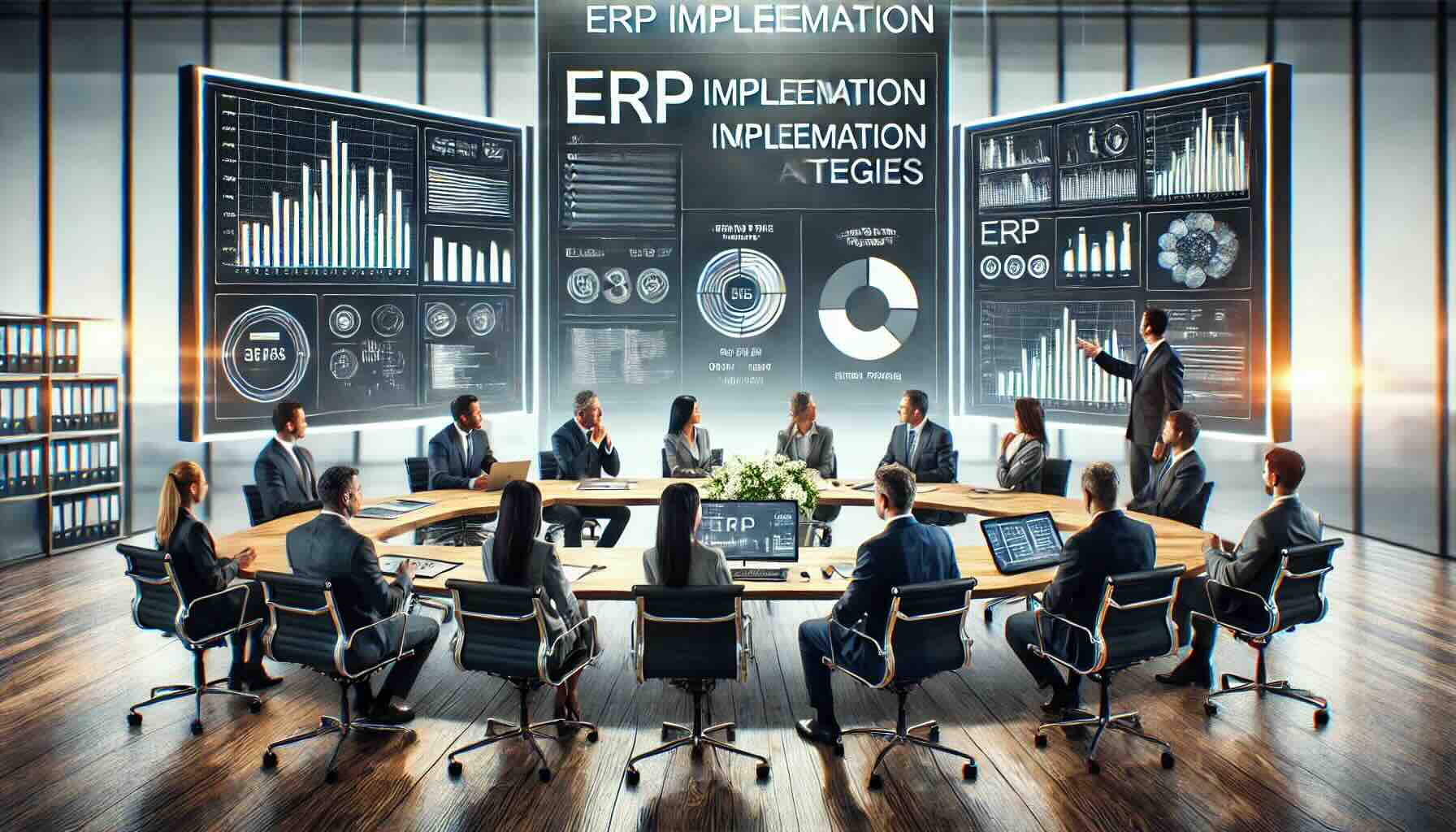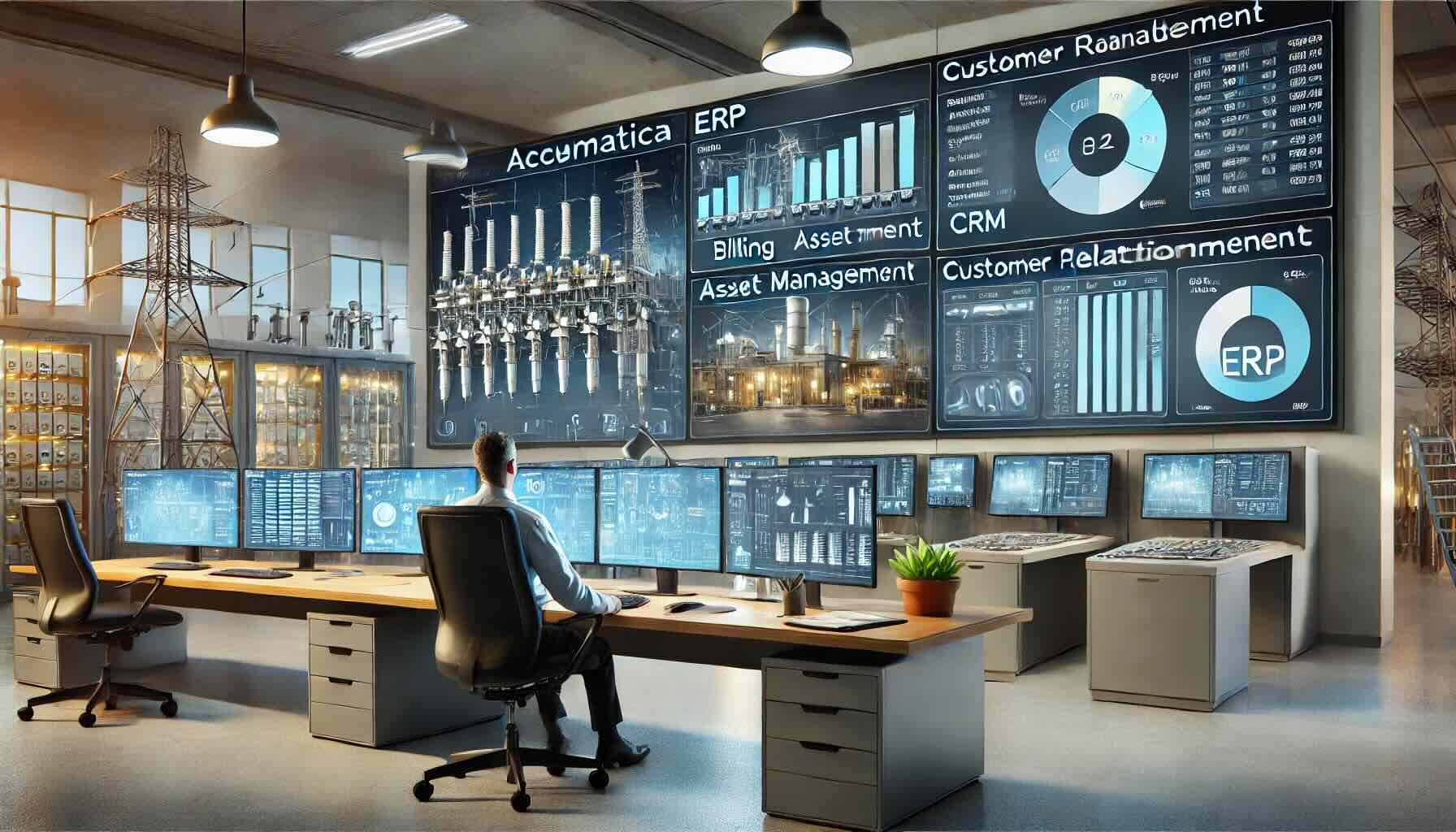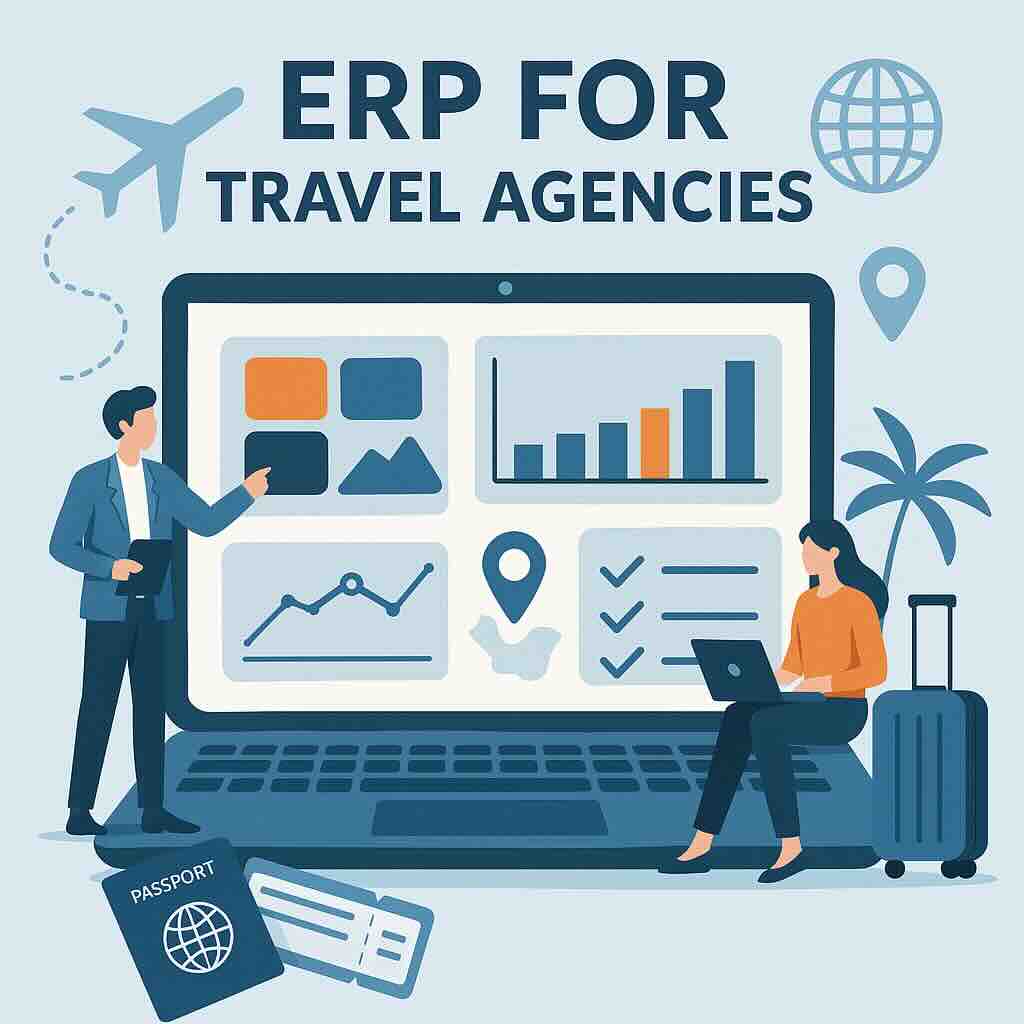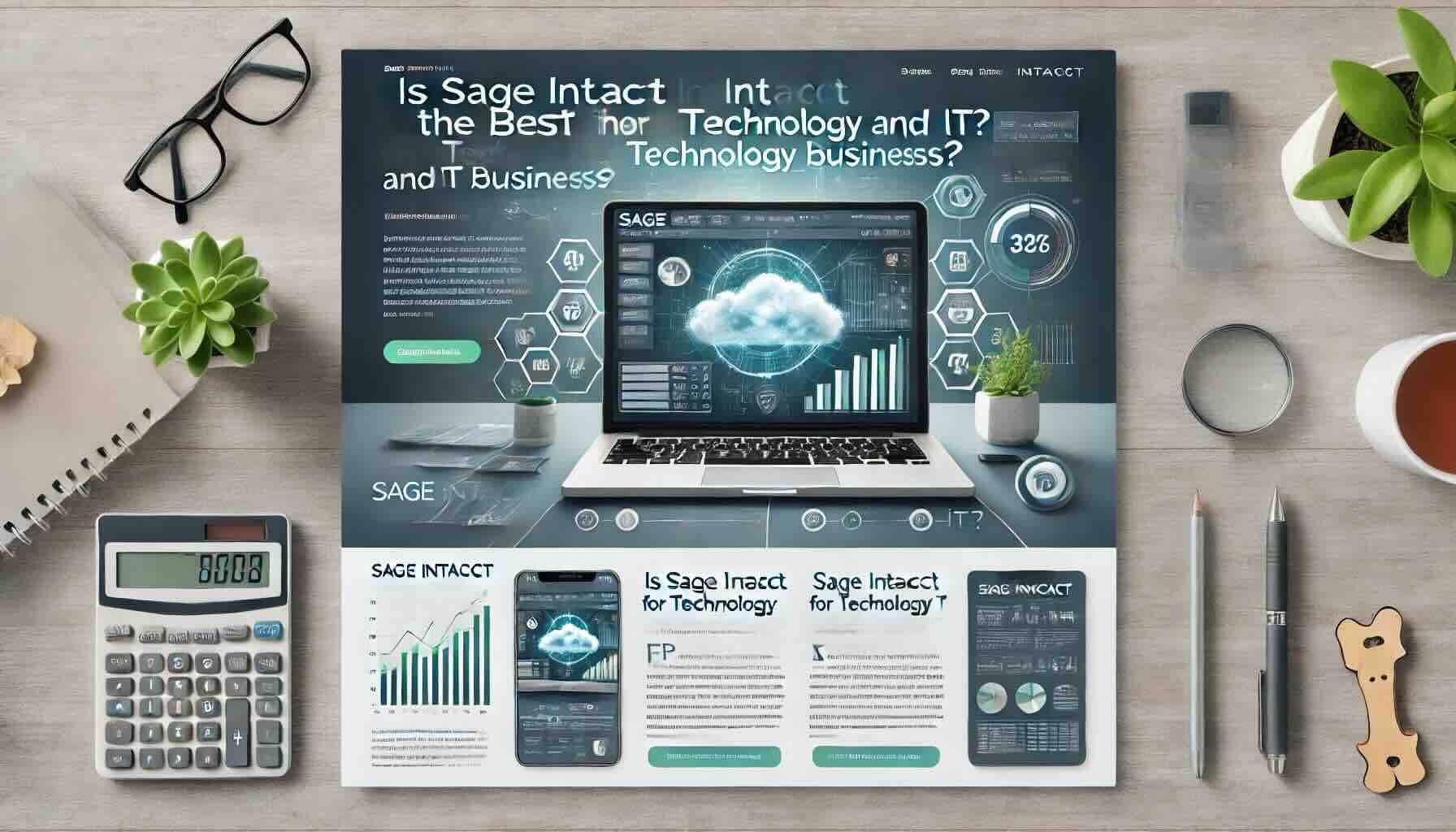Compare the Best ERP Software
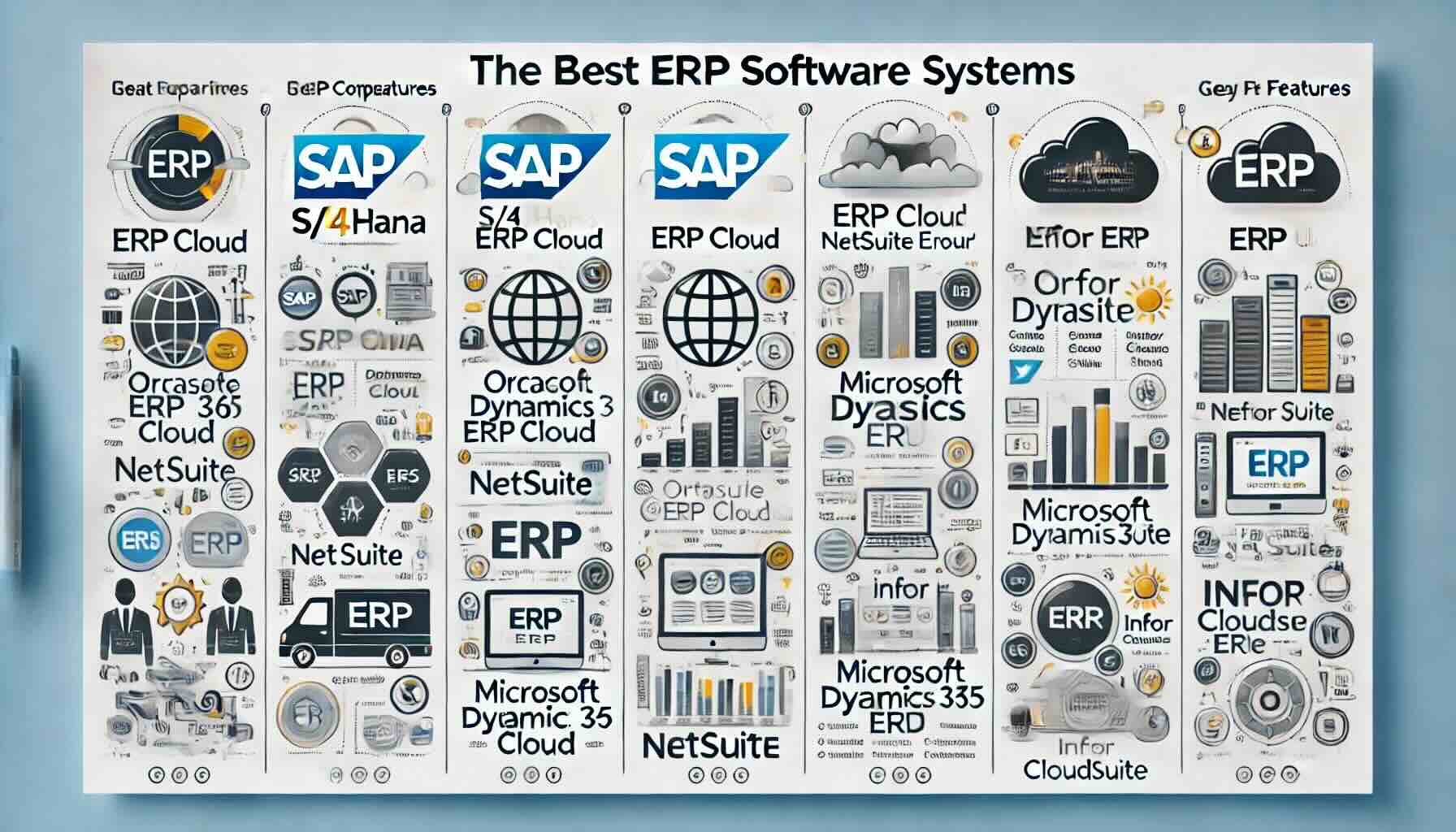
In today’s competitive business environment, selecting the best ERP software is pivotal for organizations aiming to enhance operational efficiency, integrate various business processes, and make data-driven decisions. Enterprise Resource Planning (ERP) systems have evolved to become indispensable tools for businesses of all sizes, offering a unified platform to manage finance, human resources, supply chain, customer relations, and more. With numerous ERP solutions available, each boasting unique features and benefits, it can be overwhelming to choose the right one. This blog delves into a comparative analysis of some of the top ERP software in the market, highlighting their key features, pros, and cons to help you make an informed decision.
1. SAP S/4HANA
Overview
SAP S/4HANA is a next-generation ERP suite designed to help businesses run simple in a digital and networked world. Built on the advanced SAP HANA in-memory database, SAP S/4HANA offers a simplified data model, improved user experience with SAP Fiori, and the ability to perform transactions and analytics in real time. This ERP solution is tailored for large enterprises looking for robust functionalities across finance, supply chain, procurement, and manufacturing. Its integration capabilities allow businesses to connect with various applications seamlessly, enhancing overall operational efficiency.
Key Features
- Real-time analytics
- Enhanced user experience with Fiori
- Integrated business processes
- Scalability and flexibility
Pros
- Comprehensive and robust solution
- Strong global support network
- Extensive customization options
Cons
- High implementation and maintenance costs
- Steep learning curve
2. Oracle ERP Cloud
Overview
Oracle ERP Cloud is a comprehensive cloud-based ERP solution designed to manage and automate core business functions. With a focus on providing scalability and flexibility, Oracle ERP Cloud supports a wide range of industries and business sizes. Its modular architecture allows businesses to start with the applications they need and expand as their requirements grow. Key modules include financials, procurement, project management, and supply chain management. Oracle ERP Cloud also leverages advanced technologies such as artificial intelligence (AI) and machine learning to provide predictive insights and enhance decision-making.
Key Features
- Cloud-based deployment
- Advanced financial management
- Integrated supply chain management
- Comprehensive reporting tools
Pros
- Scalability and flexibility
- Strong financial management capabilities
- Regular updates and innovation
Cons
- Complexity in customization
- Requires strong internet connectivity
3. Microsoft Dynamics 365
Overview
Microsoft Dynamics 365 combines ERP and CRM capabilities into a single, cloud-based solution designed to transform business processes and enhance customer engagement. By integrating seamlessly with other Microsoft products, such as Office 365 and Azure, Dynamics 365 provides a familiar and intuitive user experience. This ERP system is highly customizable and scalable, making it suitable for businesses of all sizes. It leverages AI and machine learning to provide actionable insights, automate routine tasks, and improve overall efficiency.
Key Features
- Unified CRM and ERP functionality
- AI and machine learning integration
- Seamless integration with Microsoft 365 and Azure
- Customizable applications
Pros
- User-friendly interface
- Strong integration with Microsoft products
- Scalable and customizable
Cons
- Can be expensive for smaller businesses
- Requires ongoing training and support
4. NetSuite ERP
Overview
NetSuite ERP, a cloud-based solution owned by Oracle, is tailored for growing businesses and mid-sized enterprises. It offers a comprehensive suite of applications to manage financials, customer relationships, and e-commerce operations. NetSuite’s cloud-based nature ensures that businesses can access their data from anywhere, making it ideal for geographically dispersed teams. Its modular design allows businesses to adopt the functionality they need and scale as they grow. Real-time visibility into business performance and advanced analytics are among its standout features.
Key Features
- Cloud-based deployment
- Comprehensive financial management
- Inventory and order management
- Real-time data and analytics
Pros
- Easy to implement and use
- Scalable for growing businesses
- Strong financial and inventory management
Cons
- Limited customization options
- Higher costs for advanced features
5. Infor CloudSuite
Overview
Infor CloudSuite is a cloud-based ERP solution tailored for specific industries, including manufacturing, healthcare, and retail. It offers deep, industry-specific functionality, which sets it apart from more generic ERP solutions. Infor CloudSuite is built on the Infor OS platform, providing advanced analytics, collaboration, and workflow capabilities. Its cloud deployment ensures flexibility and scalability, while the system’s design supports extensive customization to meet the unique needs of various industries. Integration with other Infor products and third-party applications further enhances its capabilities.
Key Features
- Industry-specific solutions
- Cloud-based deployment
- Advanced analytics and reporting
- Integrated supply chain management
Pros
- Tailored for specific industries
- Strong analytics capabilities
- Flexible deployment options
Cons
- Industry-specific customization can be complex
- Limited third-party integrations
Conclusion
Choosing the best ERP software depends on your business size, industry, and specific needs. SAP S/4HANA and Oracle ERP Cloud are excellent for large enterprises with complex requirements. Microsoft Dynamics 365 offers a unified solution with strong integration capabilities, while NetSuite ERP is ideal for growing businesses looking for a cloud-based solution. Infor CloudSuite provides industry-specific functionalities, making it a great choice for niche markets.
When selecting the best ERP software for your business, consider factors like scalability, ease of use, customization options, and overall cost. With the right ERP system, you can streamline operations, enhance productivity, and drive business growth.
To compare these ERP solutions and many more, you can use our new AI-powered Compare ERP tool. It’s free to use and you get a guaranteed discount on your first year’s licence fees with a referral from Compare ERP.

